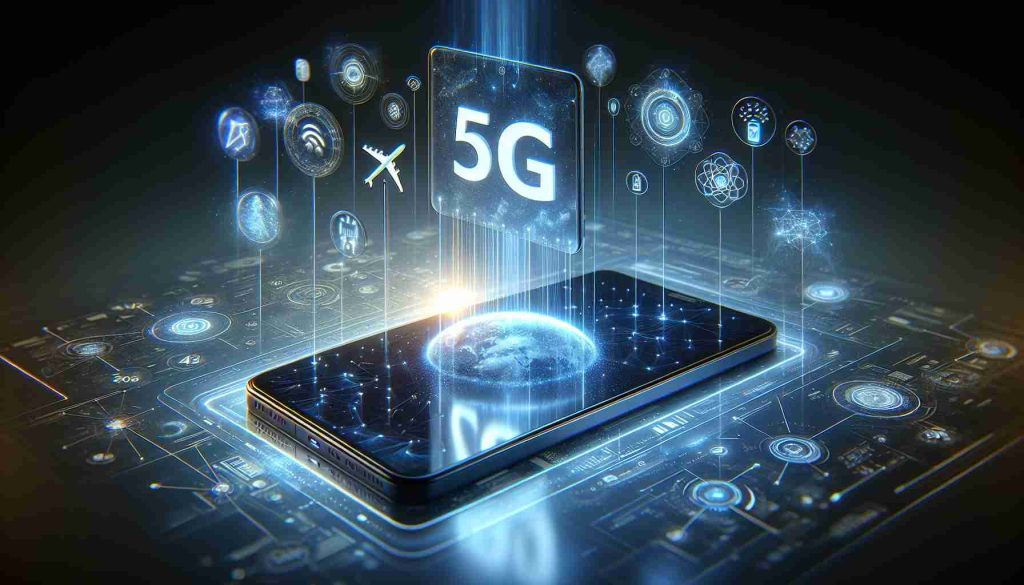How 5G Technology is Shaping the Future of Smartphones

Smartphones Heating Up with 5G
Discovering the power of 5G technology has left many users awestruck by the lightning-fast data transmission speeds. However, an unexpected drawback has emerged – smartphones heating up after prolonged use of 5G. Reports indicate that the high data transfer rates associated with 5G can lead to a significant increase in a device’s temperature, especially when engaging in data-intensive activities for extended periods.
Increased Power Consumption and Overheating
The surge in heat production during 5G use can be attributed to the ultra-fast data transmission speeds. As data processing intensifies, the phone’s processor works harder, resulting in elevated energy consumption and, consequently, more heat generation. Leading chip manufacturer Qualcomm explains that employing 5G modems can notably raise the amount of heat emitted by a phone, particularly when handling large data streams continuously.
Draining Battery Life
Research suggests that 5G connectivity accelerates battery drain compared to using 4G networks. Manufacturers such as Samsung and Apple acknowledge the higher power consumption of 5G and advise switching to 4G to prolong battery life. However, the battery usage levels also depend on the network infrastructure.
Security Concerns with 5G
In addition to performance issues, the adoption of 5G technology raises concerns regarding user privacy and security. The narrower coverage area of 5G networks, coupled with the deployment of multiple smaller antennas, enables more precise user tracking. This increase in network nodes exposes users to potential privacy breaches, like the disclosure of personal data and identification through International Mobile Subscriber Identity (IMSI) catching.
Evolution of 5G Technology in Smartphones
The rapid evolution of 5G technology is reshaping the landscape of smartphone capabilities and user experiences. While the benefits of faster data speeds and lower latency are evident, there are additional aspects to consider when delving into how 5G is influencing the future of smartphones.
What Are the Key Advantages of 5G in Smartphones?
One of the primary advantages of 5G technology in smartphones is its ability to support a wide range of innovative applications such as augmented reality (AR), virtual reality (VR), and connected IoT devices. The enhanced network capacity and speed of 5G enable seamless connectivity and real-time interactions, paving the way for more immersive experiences on mobile devices.
What Challenges and Controversies Surround 5G Implementation?
Despite its promising potential, the implementation of 5G technology in smartphones is not without challenges. One key concern is the widespread deployment of 5G infrastructure, including the installation of small cell towers and antennas to support the network. This has sparked debates over the potential health risks associated with prolonged exposure to electromagnetic radiation from these structures.
Advantages of Faster Data Speeds Versus Increased Energy Consumption
While faster data speeds are a hallmark of 5G technology, they come at a cost. The increased power consumption and heat generation in smartphones due to 5G connectivity can impact device performance and battery life. Balancing the demand for faster data transmission with the need for energy efficiency remains a critical consideration for smartphone manufacturers and users alike.
The Promise of Enhanced Connectivity Versus Privacy Concerns
The proliferation of 5G networks raises concerns about user privacy and data security. The highly connected nature of 5G technology, with its dense network of small cells, poses risks of potential security breaches and unauthorized access to personal information. Safeguarding user data while leveraging the benefits of enhanced connectivity presents a significant challenge in the era of 5G smartphones.
Exploring the Future of Smartphones with 5G Technology
As smartphone manufacturers continue to integrate 5G capabilities into their devices, the future holds immense possibilities for innovation and connectivity. Addressing the key challenges and controversies surrounding 5G implementation will be crucial in harnessing the full potential of this transformative technology for shaping the future of smartphones.
For more insights on the latest advancements in 5G technology and its impact on smartphones, visit WirelessWeek.com.